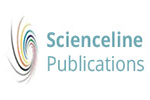(2023) Bacterial Stomatitis in Wild Reticulated Pythons (Malayopython reticulatus) in Malaysia. World's Veterinary Journal. pp. 409-419. ISSN 2322-4568
|
Text
WVJ 13(3), 409-419, September 25, 2023.pdf - Published Version Download (407kB) |
Abstract
Bacterial stomatitis is a common clinical form of upper alimentary tract disease in reptiles. The current study aimed to isolate and identify the common aerobes in the oral cavities of wild reticulated pythons and to profile their antimicrobial susceptibility. The need to conduct the current research was deemed in parallel with the increasing demand for snakes as pets and the growing emergence of multiple-drug-resistant organisms. A total of 40 fresh carcasses of the wild-caught reticulated pythons were assessed for the presence or absence of stomatitis. Oral swabs were obtained and cultured on blood and MacConkey agar media. The colony and cellular morphologies of the isolates were evaluated, followed by Gram-positive and Gram-negative bacterial identification. Antimicrobial susceptibility testing was performed using Kirby-Bauer disk diffusion method against selected antibiotics, namely gentamicin (GEN), amoxicillin (AMX), cephalexin (LEX), azithromycin (AZM), tetracycline (TET), and ciprofloxacin (CIP), commonly used to treat bacterial infection in reptiles. Results indicated that the prevalence of stomatitis was 77.5. Among 153 isolates identified, 76.47 of bacteria were identified from pythons with stomatitis lesions, while 23.53 of bacteria were identified from pythons without stomatitis. Of 153 isolates, Gramnegative bacteria were shown to be predominant (94.77). The three most isolated bacterial species were Aeromonas spp. (14.38), Klebsiella pneumoniae (11.76), and Alcaligenes faecalis (8.5). Meanwhile, coagulase-negative Staphylococcus spp. (4.58) and Corynebacterium spp. (0.66) were the only isolated Grampositive aerobes. Most isolates were observed to be equally susceptible to GEN and CIP (at 95.8) but highly resistant to AMX (83.3) and LEX (75.0). In conclusion, bacterial stomatitis in wild-caught reticulated pythons was highly prevalent and often seen as a mixed bacterial infection (96.8). The isolated bacteria consistently show susceptibility towards GEN and CIP and thus could be considered the primary line of antibiotics in treating this disease. © (2023). All Rights Reserved.
| Item Type: | Article |
|---|---|
| Keywords: | amoxicillin; azithromycin; cefalexin; ciprofloxacin; gentamicin; tetracycline, Aeromonas; Alcaligenes faecalis; antibiotic sensitivity; Article; bacterial infection; bacterium identification; bacterium isolation; carcass; cell culture; cell structure; coagulase negative Staphylococcus; Corynebacterium; female; Klebsiella pneumoniae; Malayopython reticulatus; Malaysia; male; mouth cavity; nonhuman; oral swab; pet animal; prevalence; Pythonidae; stomatitis; wild animal |
| Subjects: | S Agriculture > SF Animal culture |
| Divisions: | World's Veterinary Journal (WVJ) |
| Page Range: | pp. 409-419 |
| Journal or Publication Title: | World's Veterinary Journal |
| Journal Index: | Scopus |
| Volume: | 13 |
| Number: | 3 |
| Publisher: | SCIENCELINE |
| Identification Number: | https://doi.org/10.54203/SCIL.2023.WVJ45 |
| ISSN: | 2322-4568 |
| Depositing User: | Dr. Alireza Sadeghi |
| URI: | http://eprints.science-line.com/id/eprint/966 |
Actions (login required)
 |
View Item |


 Dimensions
Dimensions Dimensions
Dimensions